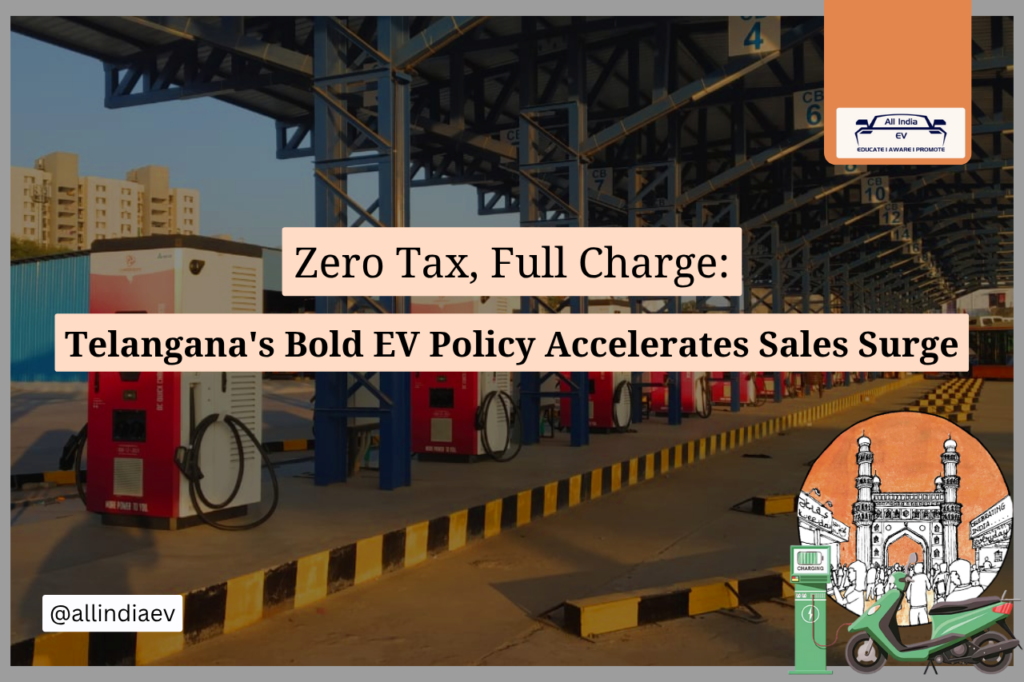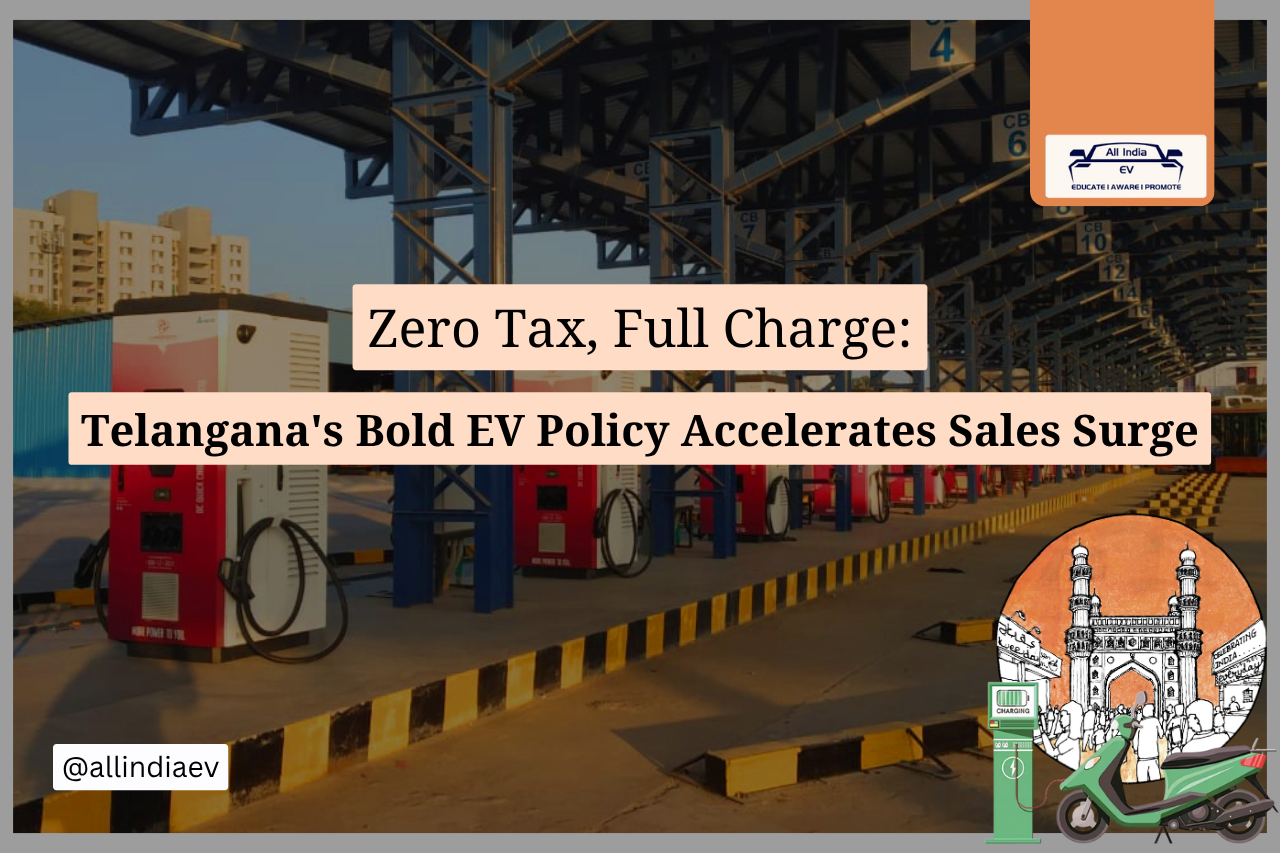
Zero Tax Boost: Telangana’s Bold EV Policy Sparks Surge in Sales with Road Tax and Registration Fee Exemptions
Telangana’s aggressive electric vehicle (EV) policy is charging ahead at full throttle. In just seven months since the policy’s launch in November 2024, the state has witnessed a remarkable spike in EV registrations—crossing 50,000 units—with a 100% exemption on road tax and registration fees fuelling demand.
According to official data, electric two-wheelers led the charge, accounting for over 37,000 units sold during this period. This was followed by approximately 10,000 electric cars, including 1,153 registered as taxis. The remaining sales were from electric three-wheelers, light goods vehicles, tractors, and buses.
The surge in demand has nearly doubled the state’s total number of registered EVs in just one year. Telangana’s EV population jumped from around 1.25 lakh in FY 2023–24 to over 2 lakh in FY 2024–25—underscoring the success of its zero-tax initiative.
Policy Highlights: Full Exemption, Wide Coverage
Implemented in late 2024, Telangana’s EV policy offers a 100% waiver on road tax and registration charges for all categories of electric vehicles. This includes:
- Two-wheelers
- Four-wheelers and taxis
- Three-seater autorickshaws
- Light goods carriers
- Electric tractors and buses
Importantly, this exemption is not capped by vehicle numbers and will remain valid until December 31, 2026.
Industry experts say the initiative has had an immediate and significant impact, especially in urban centres like Hyderabad. The financial incentive has made EVs substantially more affordable, particularly for cost-sensitive consumers.
EV Permits for Commercial Vehicles Add Momentum
Adding further boost to the commercial EV sector, the state recently issued 20,000 new permits for electric three-wheelers (e3Ws). Experts say this move is expected to expand last-mile mobility options and promote sustainable livelihoods.
“Telangana’s zero-life-tax policy has set a benchmark in EV adoption,” said Venugopal Rao Nellutla, an electric mobility industry expert. “However, to build on this momentum—especially in rural and underserved areas—there’s a strong case for special financing and subsidy schemes through SC, ST, and minority development corporations.”
According to Rao, targeted support would help increase not just the financial viability but also the social acceptance of EVs, particularly electric rickshaws and cargo carriers, in semi-urban and rural markets.
Looking Ahead: A Model for Other States
As India pushes to achieve its ambitious decarbonisation and clean mobility goals, Telangana’s model provides a valuable case study. With no upper limit on the number of EVs that can benefit from the tax waiver, the policy is expected to continue driving adoption in both personal and commercial segments.
If replicated nationally, such comprehensive incentives could accelerate India’s shift toward clean transportation—one state at a time.










